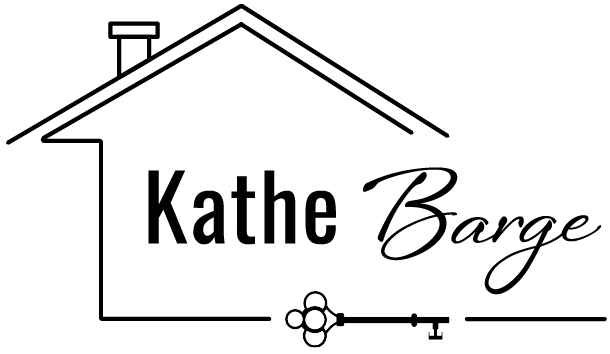
by Kathe Barge | Aug 6, 2024 | Buyers, Buying Conditions, Contracts, Helpful Tips, Inspections, Interest Rates, Listings, Market Trends, Mortgage
We’re first-time home buyers. Where do we begin? (Part 4 of 4 – Last Chapter)
As you approach the final stretch of your home buying journey, it’s time to focus on the crucial steps that will bring you to the finish line. After months of searching, negotiating, and securing financing, you’ll need to ensure that all remaining documents are in order for your lender. This might include providing the latest pay stubs, bank statements, or any other documentation that the lender requires to finalize your mortgage. Additionally, securing homeowners insurance is a critical step that must be completed before closing. Start shopping for insurance early to compare coverage options and rates, ensuring that your new home is well-protected from the start. It’s also time to turn your attention to connecting utilities. Contact your local utility providers—such as electricity, gas, water, internet, and waste management—to set up new accounts and arrange for service activation.
Finally, as the closing date approaches, conduct a final walkthrough of the property, usually a day or two before closing. This walkthrough is your opportunity to verify that the property is in the condition agreed upon and that any repairs negotiated in the contract have been completed. Carefully inspect each room, test appliances, and ensure that everything is functioning as expected. If any issues arise, discuss them with your real estate agent immediately. On closing day, be prepared with a driver’s license or passport. Once everything is signed and the closing costs are paid, you’ll receive the keys to your new home, marking the completion of your journey and the beginning of a new chapter in your life. Congratulations on becoming a homeowner!

by Kathe Barge | Jul 3, 2024 | Buyers, Buying Conditions, Contracts, Helpful Tips, Inspections, Interest Rates, Listings, Market Trends, Mortgage, Property Value, Real Estate
We’re first time home buyers. Where do we begin? (Part 2)
For those of who just picking up the conversation today, check out Part One to read my introduction to the home buying process. If you are following along, so far you have gotten pre-approved for your mortgage, researched and chosen a buyer’s agent to be your advocate, and hopefully saved money for your down payment. Now the fun begins!
Once you are pre-approved for a loan and have determined what price range you are comfortable shopping in, you can start your home search. Typically, this begins with an online search – your buyer’s agent should set you up to receive new properties as they become available. As interesting homes come on the market, you will want to tour them immediately. In most price ranges, we have an extreme shortage of inventory and those who snooze tend to lose. It is important to have seen enough properties upfront so that when you see the right one, you know it and are ready to make a move. When evaluating homes, it is also important to be realistic. There is no perfect home, so establish your list of criteria upfront. If a home achieves 7 out of 10 wish list items, in real estate we call that a home run. If you are going to hold out for all 10, a move is probably not in the cards for you in the short run.
Once you find a home that works for you, in this market you do need to anticipate a bidding war is a realistic possibility. Interestingly, even homes that have sat on the market for seemingly prolonged periods of time will often receive multiple offers, so do not delay in making an offer if you like a home. If there are multiple offers, do not assume you will get a second chance – work with your buyers offer to make the highest, “cleanest” offer that you can out of the gate.
Once you have a home under agreement and have deposited your hand money (anticipate 1%-5% of your purchase price depending on your price range), you will be ready to schedule your inspections. Next week I will talk more about inspections and how to get through them!
taking-the-first-steps-part-one
taking-the-first-steps-part-three

by Kathe Barge | May 13, 2024 | Buyers, Contracts, Helpful Tips, Inspections, Listings, Market Trends, Real Estate
What legal considerations should I be aware of when buying or selling a home?
Buying a home involves many legal components. Most buyers focus on how the house looks and give very little thought to the most important pieces of the transaction. One key legal consideration in real estate transactions is the proper drafting and understanding of the purchase agreement. This contract outlines the terms of the sale, including price, closing conditions, and any contingencies such as the buyer obtaining financing or the results of a home inspection. Both buyers and sellers should thoroughly review this document with their expert agent before signing to ensure all terms are clear and protect their interests. Any ambiguity or oversight in this contract can lead to disputes or financial losses.
Ensuring the legal integrity of the property’s boundaries is also crucial. Both buyers and sellers should have an up-to-date survey conducted to confirm property lines and identify any encroachments or easements that may impact ownership rights. Understanding these details helps prevent disputes with neighbors and ensures that all parties have clear expectations about the property’s limits.
Lastly, it is important that you have a good understanding of local zoning laws and regulations. Buyers should verify that their intended use of the property aligns with local zoning ordinances, which can affect everything from home renovations to business usage. Sellers must disclose any known zoning violations that could affect the property’s value or usability. Compliance with these laws ensures that buyers can utilize their new property as planned and avoids legal complications down the road. My legal education makes me uniquely qualified to help buyers and sellers avoid these and other legal pitfalls – connect with me for more information!

by Kathe Barge | Apr 26, 2024 | Buyers, Buying Conditions, Contracts, Helpful Tips, Inspections, Interest Rates, Listings, Market Trends, Mortgage, Property Value
What are some common mistakes homebuyers make and how can I avoid them?
One of the initial mistakes homebuyers often make the mistake of not getting pre-approved for a mortgage before starting their home search. This oversight can lead to disappointment if they find a home they love but then discover they are not qualified to purchase it. To avoid this, it’s essential to secure pre-approval from a lender early in the process. This not only helps you understand exactly how much you can afford but also strengthens your position when you’re ready to make an offer, showing sellers that you are a serious and prepared buyer.
Another significant mistake is skipping the home inspection process. While this may seem like a good way to save money or make a more appealing offer in a competitive market, it can lead to costly repairs down the line. A professional home inspection can uncover hidden problems with the home’s structure, systems, and appliances that might not be obvious to an untrained eye. Always include a home inspection contingency in your purchase offer, which allows you to renegotiate or withdraw if significant issues are discovered. This not only provides peace of mind but also protects your investment.
Finally, buyers often fall into the trap of emotional buying, where the decision to purchase is heavily influenced by first impressions rather than practical considerations. While it’s important to have a connection to the home you buy, letting emotions override rational decision-making can lead to overlooking critical flaws or financial missteps. To combat this, always have a list of must-haves and deal-breakers for your new home, and stick to it during your search. Thoroughly weigh the pros and cons before making your final decision to ensure the home meets both your emotional and practical needs.

by Kathe Barge | Feb 12, 2024 | Blog, Buyers, Buying Conditions, Design, Helpful Tips, Home Staging, Inspections, Investment Properties, Listings, Property Updates, Property Value, Sellers, Selling Conditions
How do you approach homes that may not be ready for market when you first see them? Is it better if the home is completely ready before you see it?
Generally, its best if I see your home before you make any changes to get it ready for market. After 25 years selling real estate in this town, I am able to help you figure out where your money is best invested to reap the highest return from the market and advise you on current trends. You may be focusing on things that are not important to buyers, and may overlook things that are.
Realizing top market value is a common goal for sellers, and in today’s HGTV-inspired market, it’s achievable with the right preparations. I’m here to guide you through those decisions, using my market expertise to ensure that your investments are both wise and likely to return their value. Together, we can navigate the nuances of the market’s current expectations. My role is to provide you with candid, constructive feedback to help you understand the market’s perspective. It’s a collaborative journey, where I share insights—not to criticize, but to empower you. I appreciate the love and care you’ve invested in your home, and my aim is to honor that by positioning your property as a compelling opportunity for buyers, avoiding the pitfalls of a stagnant listing or the need for multiple price adjustments. Therefore, while your home’s story is uniquely yours, I’m here to help translate it into the universal language of the current market for a seamless sale. Let’s work together to turn your home’s potential into a polished presentation that stands out, ensuring you don’t just list your house, but truly showcase it for what it can offer to the next owner!

by Kathe Barge | Aug 26, 2022 | Buyers, Buying Conditions, Contracts, For Sale By Owner, Helpful Tips, Home Improvements, Inspections, Listings, Property Updates, Property Value, Real Estate, Sellers, Sellers-Contracts
We find the inspection process confusing – do we have to fix everything in the inspection report before we close on our home or just the repairs the buyer requested?
The home inspection report is the document from which your buyer works to make their repair requests of you. Some buyers will ask for everything and others will ask for only those items that they think are important. They may let some things go, for example, if they are planning on renovating an area and anticipate fixing those items as a part of the renovation.
Once you and your buyer agree on a list of repairs, these are memorialized on an addendum. It is that addendum, called a Change in Terms Addendum (“CTA”), from which you work when completing your repairs. You need not refer to the inspection again unless the CTA references it. You do, however, need to make sure that you do everything on the CTA exactly as specified, so be sure to read it carefully and provide a copy to your contractor(s). For example, if the CTA says that you will have GFCI outlets installed by a licensed electrician then you need to make sure you hire a licensed electrician, and not your favorite handyman, to make the repair! If the CTA says you must paint to match existing then you need to take a sample of the existing paint to the paint store and color match it – don’t rely on old paint in cans – paint fades with age and it won’t match. Be very careful to be sure you are complying with the terms of the CTA – if you do not, or if your contractor does not, your closing may be delayed or postponed until the work is done as specified. Along those lines, be sure to review your contactor’s work when complete and make sure that he actually did what you agreed to do on the CTA. If not, request that he return before it becomes a walk-through issue.
And of course, be sure to get paid receipts from all contractors, or if they have not been paid, notify the closing company so that they can be paid at closing. All repairs must be paid for before ownership changes hands so be sure to stay on top of your bills, and provide receipts to the buyers agent.

by Kathe Barge | Aug 8, 2022 | Buyers, Buying Conditions, Design, Downsizing, Helpful Tips, Home Improvements, Home Staging, Inspections, Market Trends, Property Updates, Property Value, Real Estate, Sellers, Selling Conditions
We aren’t ready to move but want to update our home – what are the best choices for paint colors and flooring changes, assuming we may want to move in the next few years?
New paint colors must harmonize with the rest of your home, unless you plan to repaint the entire interior of your home, so any suggestions need to be taken in the context of what else is going on inside your home. My best suggestion for a currently fairly timeless paint color is Benjamin Moore’s Edgecomb Gray. This color blends with virtually every shade of white that might be on your trim and nearly every color flooring that might be in your home. It is really more of a greige than a gray and, like a chameleon, changes color a bit depending on what is in the space and what kind of light is filtering in through the windows. However, if your home is a palette if golds, for example, this color might not be the right choice! Trending now is white on white (with trim and walls painted the same or nearly the same shade of white), but this is a design style that is best incorporated throughout the entire home, and not just a singular room. If you have wallpaper in your space, then it’s a very good investment to have it removed (do not paint over it, no matter what the painter tells you) and painted in a color that coordinates with your design aesthetic. Wallpaper overall remains a difficult sell.
This color blends with virtually every shade of white that might be on your trim and nearly every color flooring that might be in your home. It is really more of a greige than a gray and, like a chameleon, changes color a bit depending on what is in the space and what kind of light is filtering in through the windows. However, if your home is a palette if golds, for example, this color might not be the right choice! Trending now is white on white (with trim and walls painted the same or nearly the same shade of white), but this is a design style that is best incorporated throughout the entire home, and not just a singular room. If you have wallpaper in your space, then it’s a very good investment to have it removed (do not paint over it, no matter what the painter tells you) and painted in a color that coordinates with your design aesthetic. Wallpaper overall remains a difficult sell.
As to flooring, real wood floors remain the best investment you can make. They are timeless and easy to refinish if they become worn or if the buyer prefers a different color. I highly recommend choosing a medium tone brown, not too yellow, red or dark and preferably in ¾” thickness. If engineered wood floors are what your budget requires, choose one that the manufacturer indicates can be refinished at least once, and keep a few extra pieces on hand in case you damage any through normal wear and tear. Bamboo is another great option and there are on-line suppliers that offer a variety of shades in ¾” planks – it is very resilient, environmentally friendly and installed can look like hardwood. I do not recommend that you choose the latest trend, “LVL” (luxury vinyl flooring), for anything beyond the basement level of your home. These are plastic floors, and if your home will likely sell for over $500,000, these floors will not be appreciated on the main or upper levels. Finally, carpet in a neutral tone plush (no berber, no mixed colors) is acceptable as long as they are clean and stain free. If you stain them during the remaining time in your home, you would need to replace them again before you sell your home.

by Kathe Barge | Mar 30, 2022 | Buyers, Buying Conditions, Contracts, Helpful Tips, Inspections, Listings, Market Trends, Property Updates, Property Value, Real Estate, Sellers
The market is so hot right now and we aren’t having any luck getting a home – should we waive home inspections?
You are correct –the market under $1million is very fast paced right now, and in many instances, the winning bidder has waived home inspections. That does seem to be what it may take to “win” right now but I cannot recommend that you make that choice. Now several months into the “waive inspections” craze we are starting to hear stories about the expected fallout from this hasty decision.
From the seller’s perspective, I highly recommend that you have your home pre-inspected and repair or disclose the relevant items. While an inspection might cost you upwards of $500, it is money well spent toward a smooth closing. If you have pre-inspected your home and provide the report to prospective buyers, you are doing your part to make sure your buyer is well-informed. In the absence of a pre-inspection, I do not recommend that you accept an offer from a buyer who has not inspected your home. I have started hearing from home inspectors that disgruntled buyers are seeking post closing inspections to find problematic items and sue the sellers for failure to disclose. You don’t want that to be you. If you have not pre-inspected, we can discuss strategies to allow a buyer’s inspection and still protect you.
From a buyer’s perspective, as we all imagined would happen, the post-closing stories are starting to mount about buyers who purchased without an inspection and are now having all sorts of forseeable issues – roofs leaking, furnaces failing… If you are going to make this risky choice, you need to do so knowing that you will be assuming the risk of potentially tens of thousands of dollars of issues The contract specifically states that your inspection is your opportunity to find issues – if you waive that, you will be fighting an uphill battle to recover against anyone. Before you make an offer without an inspection contingency, you really do need to ask yourself if you are prepared to absorb those costs!

by Kathe Barge | Mar 8, 2022 | Buying Conditions, Helpful Tips, Inspections, Listings, Market Trends, Real Estate, Sellers
Our neighbor just had to replace their sewer line – is that a common home inspection repair?
Sewer lines have become as radon was 20 years ago – today’s hot button for home buyers. In some boroughs (Mt Lebanon, for example) the borough now requires that before a home seller can transfer ownership, the sewer line must be scoped and must be without issues. Here in the Sewickley area, we do not have any boroughs imposing any such requirement on home sellers yet, but many buyers today do have a scope performed of the sewer line as part of their home inspection. And yes, if issues are discovered, they do expect the seller to remedy them. If a sewer line needs to be replaced, the cost will likely be between $5,000 and $10,000.
Sewer lines are not something we think about on a daily basis. As long as we don’t have back-ups, we assume that all is well with the line. But this is not necessarily the case. With older homes, sewer lines were made of terracotta pipe and this can break easily and can also be easily infiltrated by tree roots. If you live in an older home and haven’t replaced your sewer line, there is a good chance you have some issues.
Paying for a sewer camera test is not anyone’s idea of a good time, but if you are contemplating a sale of your home, it is probably a smart, pro-active thing to do. If you discover a problem in advance, there may be some cost-effective options for you to solve the problem without a full replacement of the line. Sewer lines can often by lined with a plastic liner. Tree roots can often by removed by hydrojetting. If you wait for a buyer to perform the test, you may get stuck with a full new line — the buyer might not accept one of the compromise options. So its best to explore the sewer line now, before it becomes an issue, and make any needed corrections.

by Kathe Barge | Feb 2, 2022 | Buyers, Buying Conditions, Inspections, Listings, Property Updates, Property Value, Real Estate, Sellers, Selling Conditions
Sometimes it seems like everything is breaking around our house and we get behind on repairs. Isn’t there some level of wear and tear buyers of “previously enjoyed” homes are expecting to have to accept?
The process of selling and buying a home involves many fine lines. How far do you take preparing your home for sale? Do you really need to address all of the items suggested by your agent, the home stager or the home inspector who did a pre-inspection? Do you really have to attend to everything your family has broken or worn out over the years
Anything that could come up on an inspection, if you know about it, really must be repaired or disclosed. My vote is repair. Even with items that are very obvious, when an inspector gets involved, he may blow the issue out of proportion and something that might have cost you $1000 to repair before you listed ends up costing you $3000 on the inspection request. If its something an inspector might find, you can bet he will find it and you will be expected to cover the cost of repair anyhow, so you might as well repair upfront.
Many buyers actually get quite nervous during the home inspection (also known as buyers remorse). If you happened to have gotten one of these buyers, it is possible that they could walk away from your deal if the inspection concerns feel too weighty to them. After you actually receive and negotiate the offer, the last thing you want to do is lose the buyer over items that you could have fixed but didn’t think anyone would notice or care about! In today’s market, they notice, they care. Sometimes they are willing to let you pay for the repair. Sometimes they just walk. Don’t take any chances. If you suspect it is likely someone would seek a repair, get it done!
Buyers, as much as I advocate for sellers to take care of the wear and tear items on their homes, it is important for you to be reasonable on your inspection requests as well. If you see an item that needs to be fixed while you are touring the home, take that into account when you make your offer and do not revisit it on the inspection. Inspection requests are supposed to be for items you didn’t know about and didn’t have a chance to adjust for in making your offer. Again, its a fine line buyers also walk in deciding what are fair and appropriate inspection requests of a seller.









 This color blends with virtually every shade of white that might be on your trim and nearly every color flooring that might be in your home. It is really more of a greige than a gray and, like a chameleon, changes color a bit depending on what is in the space and what kind of light is filtering in through the windows. However, if your home is a palette if golds, for example, this color might not be the right choice! Trending now is white on white (with trim and walls painted the same or nearly the same shade of white), but this is a design style that is best incorporated throughout the entire home, and not just a singular room. If you have wallpaper in your space, then it’s a very good investment to have it removed (do not paint over it, no matter what the painter tells you) and painted in a color that coordinates with your design aesthetic. Wallpaper overall remains a difficult sell.
This color blends with virtually every shade of white that might be on your trim and nearly every color flooring that might be in your home. It is really more of a greige than a gray and, like a chameleon, changes color a bit depending on what is in the space and what kind of light is filtering in through the windows. However, if your home is a palette if golds, for example, this color might not be the right choice! Trending now is white on white (with trim and walls painted the same or nearly the same shade of white), but this is a design style that is best incorporated throughout the entire home, and not just a singular room. If you have wallpaper in your space, then it’s a very good investment to have it removed (do not paint over it, no matter what the painter tells you) and painted in a color that coordinates with your design aesthetic. Wallpaper overall remains a difficult sell.



